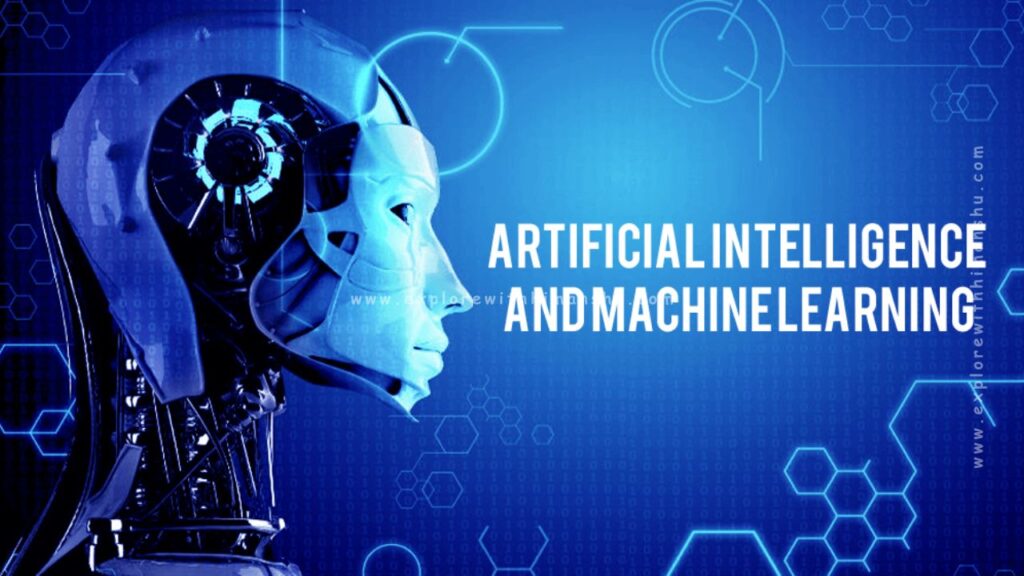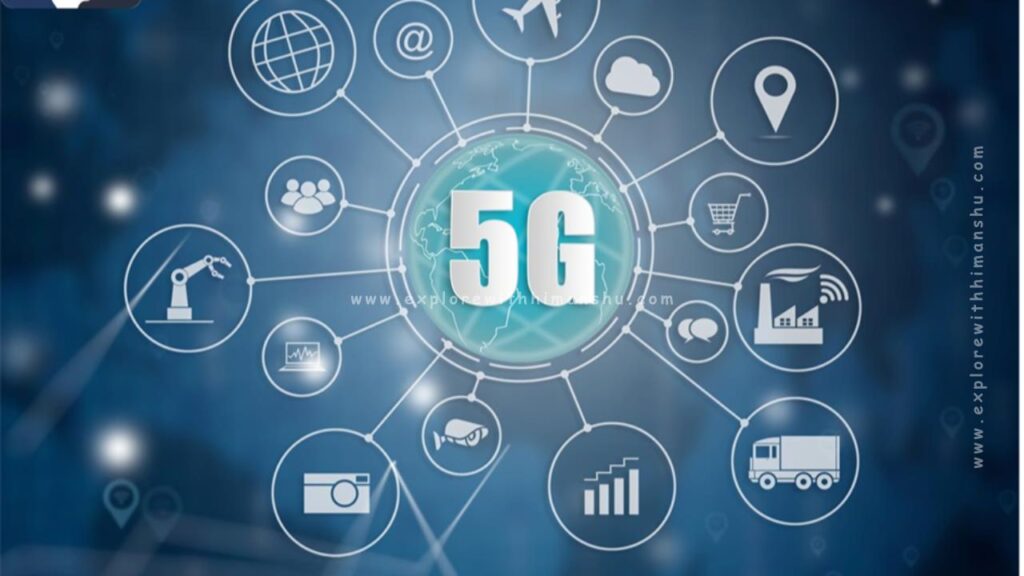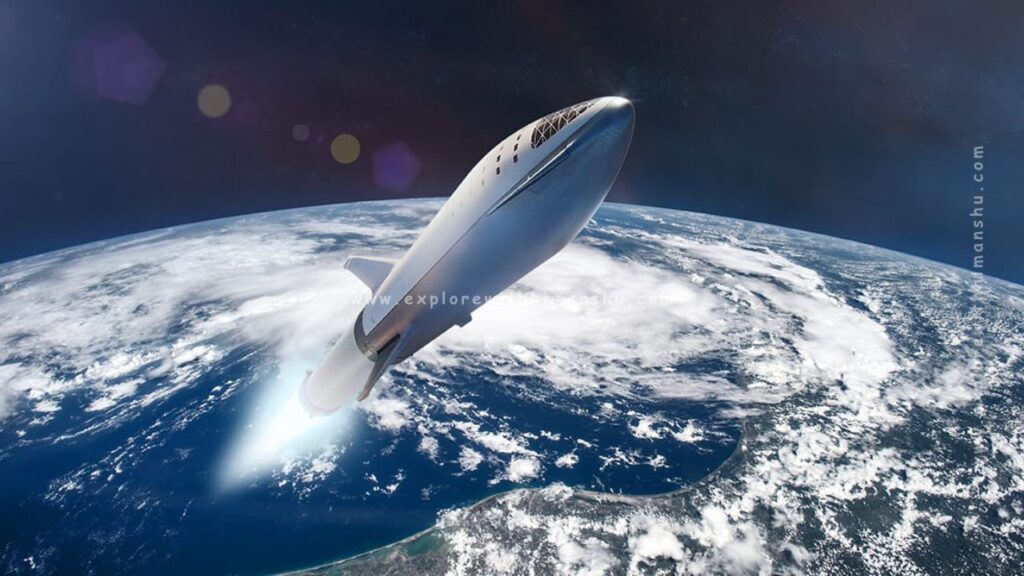Introduction
Technology is the using force behind present day civilization. From artificial intelligence (AI) to quantum computing, innovations are constantly reshaping industries, companies, and normal existence. In 2025 and past, emerging technologies will retain to evolve, offering each extraordinary possibilities and demanding situations. The rapid pace of alternate calls for individuals, corporations, and governments to live in advance of the curve with the aid of adopting new digital gear and techniques.
Discover the latest technology trends shaping 2025 and beyond. Explore AI, blockchain, 5G, and emerging innovations with detailed case studies and insights. Stay ahead in the tech world!
This blog explores the latest technological advancements, how they impact various sectors, and the future trajectory of innovation. Through case studies, tables, and deep insights, we will examine the future of technology and its role in shaping our world.

1. Artificial Intelligence and Machine Learning
1.1 The Growth of AI and ML
Artificial Intelligence (AI) and Machine Learning (ML) are at the forefront of technological advancements. From self-driving cars to automated customer service, AI-driven solutions are transforming every industry.
Best YouTube Niches In 2025: Trending Topics to Grow Your Channel
1.2 AI’s Impact on Industries
| Industry | Use Cases of AI |
|---|---|
| Healthcare | AI-powered diagnostics, robotic surgeries, and drug discovery |
| Finance | Fraud detection, automated trading, risk assessment |
| Retail | Personalized shopping experiences, inventory management |
| Manufacturing | Predictive maintenance, quality control, automation |
| Transportation | Self-driving vehicles, AI-driven traffic management |
1.3 Case Study: AI in Healthcare
AI-powered diagnostic tools such as IBM Watson have been helping doctors analyze medical images and detect diseases like cancer at an early stage. AI-driven chatbots are also assisting patients with medical inquiries, improving healthcare accessibility.
2. The Rise of Quantum Computing
Quantum computing is set to revolutionize problem-solving capabilities by processing complex calculations exponentially faster than traditional computers.
2.1 How Quantum Computing Works
Unlike classical computers that use binary bits (0s and 1s), quantum computers use qubits, allowing them to perform multiple calculations simultaneously.
The Future of AI in 2025: How Artificial Intelligence is Transforming Industries.
2.2 Applications of Quantum Computing
| Field | Potential Benefits |
|---|---|
| Cryptography | Unbreakable encryption |
| Drug Discovery | Simulating molecular structures for faster drug development |
| Climate Modeling | More accurate weather and climate predictions |
| Financial Modeling | Advanced risk analysis for investments |
2.3 Case Study: Google’s Quantum Supremacy
Google’s Sycamore quantum processor performed a calculation in 200 seconds that would take the world’s fastest supercomputer over 10,000 years to complete. This milestone highlights the transformative potential of quantum computing.

3. The Expansion of 5G and Beyond
5G technology is revolutionizing mobile connectivity, offering faster speeds, lower latency, and improved network reliability.
3.1 Benefits of 5G
- Faster Internet Speeds: Up to 100x faster than 4G
- Reduced Latency: Essential for real-time applications like AR/VR and autonomous vehicles
- Enhanced IoT Connectivity: Facilitates smart cities and industrial automation
3.2 Case Study: 5G in Smart Cities
Cities like Seoul and Singapore are leveraging 5G networks to develop smart traffic management systems, improving efficiency and reducing congestion.
4. Blockchain and Decentralized Technologies
Blockchain technology is disrupting traditional industries by offering secure, transparent, and decentralized solutions.
4.1 Key Applications of Blockchain
| Sector | Blockchain Use Case |
|---|---|
| Finance | Cryptocurrency transactions, decentralized finance (DeFi) |
| Healthcare | Secure patient records |
| Supply Chain | Transparent tracking of goods |
| Voting Systems | Tamper-proof digital voting |
4.2 Case Study: Bitcoin and Cryptocurrency
Bitcoin’s rise has paved the way for decentralized finance (DeFi), reducing reliance on traditional banking systems and enabling peer-to-peer transactions.
5. The Future of Work: Automation and Remote Jobs
The workplace is undergoing a transformation due to automation and remote work technologies.
5.1 How Automation is Changing Jobs
| Job Type | Risk of Automation |
|---|---|
| Manufacturing | High (Robots replacing manual labor) |
| Data Entry | High (AI-driven automation) |
| Software Development | Medium (AI-assisted coding tools) |
| Healthcare | Low (Human expertise required) |
5.2 Case Study: The Gig Economy
Platforms like Upwork and Fiverr have enabled freelancers worldwide to find work remotely, showcasing the growing shift towards a digital workforce.

6. Space Exploration and the New Space Race
Space technology is advancing rapidly, with private companies joining government space agencies in exploration efforts.
The Future of AI in 2025: A Comprehensive Review & Case Study
6.1 Key Players in Space Exploration
| Company | Major Achievements |
|---|---|
| SpaceX | Reusable rockets, Mars colonization plans |
| Blue Origin | Space tourism, lunar missions |
| NASA | Artemis mission to the Moon |
| ISRO | Chandrayaan and Gaganyaan missions |
6.2 Case Study: Mars Colonization Plans
Elon Musk’s SpaceX is working on Starship, a fully reusable spacecraft designed for Mars missions, marking a significant step towards interplanetary colonization.
Conclusion
Technology continues to reshape the world,impacting industries, economies, and daily lives. As we appearance in advance to 2025 and past, innovations in AI, quantum computing, 5G, blockchain, automation, and area exploration will pressure progress. Businesses and people need to adapt to those technological shifts to stay competitive and leverage new opportunities.
The future is digital, decentralized, and statistics-driven. By embracing those modifications, society can release new potentials and create a more superior, green, and related world.
Whether you’re a startup or an established enterprise, adapting to these changing trends will determine long-term success. By focusing on technology, sustainability, and customer-centric approaches, businesses can achieve growth and create a positive impact in the evolving global market.
Moreover, businesses that leverage data analytics and artificial intelligence will gain deeper insights into consumer behavior, helping them refine their strategies for maximum impact. Staying ahead requires a mindset of continuous learning and adaptation, ensuring that companies remain resilient amidst an ever-changing economic environment.
By integrating ethical considerations and social responsibility, businesses can foster strong customer loyalty and build long-term brand equity. The emphasis on environmental sustainability will not only help the planet but also position companies as leaders in corporate responsibility.
Ultimately, success in the future business landscape will belong to those who embrace innovation, stay agile, and remain committed to delivering value to their customers. The journey ahead is filled with exciting possibilities, and the businesses that seize these opportunities will lead the way into a new era of growth and transformation.
What are your thoughts on the future of technology? Share your insights in the comments below!


